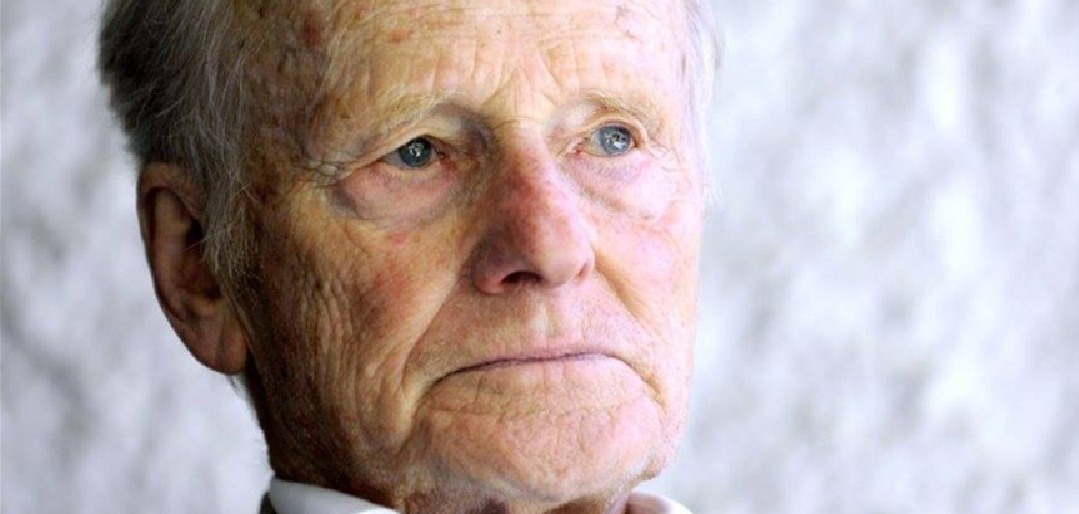 Robert Spaemann, the last great Catholic philosopher
Robert Spaemann, the last great Catholic philosopher

Decembr 13, 2018
He was the philosopher closest to Benedict XVI, his friend and peer. He died at the age of 91 on December 10, in the light of the season of Advent.
Further below, a profile of him is sketched by one of his most faithful disciples, Sergio Belardinelli, a professor of the sociology of cultural processes at the University of Bologna, who ws the academic coordinator of the “Cultural Project” of the Italian episcopal conference during the years of Cardinal Camillo Ruini’s presidency.
But it must be noted that Spaemann was both a philosopher and a churchman, a Catholic through and through, very severe with the tendencies of the current pontificate, especially after the publication of “Amoris Laetitia.”
His last public statements stand out for these judgments of his on the present state of the Church:
“Pope Francis does not love unambiguous clarity. His response is so ambiguous that everyone can interpret it, and does interpret it, in favor of his own opinion. He wants only to ‘make proposals.’ But to contradict the proposals is not forbidden. And, in my view, they should be vigorously contradicted.”
“Pope Francis likes to compare those who are critical of his politics with those who ‘sit on Moses’ seat.’ But in this way the shot comes back at the one who fired it. It was the scribes who were defending divorce and handing down the rules about it. The disciples of Jesus were, instead, disconcerted over the strict ban on divorce on the part of the Master.”
“Uncertainty, insecurity, and confusion are growing in the Church: from the episcopal conferences to the last parish in the jungle. “
“The chaos was first set up with a stroke of the pen. The pope should have known that such a step would split the Church and lead it toward a schism. This schism would not reside on the periphery, but in the very heart of the Church.”
Settimo Cielo posted two interviews with Spaemann:
> Spaemann: "Anche nella Chiesa c’è un limite di sopportabilità"
(Even in the Churh, there's a limit to what can be supported)
> Spaemann: "È il caos eretto a principio con un tratto di penna"
(It is chaos established in principle by the storke of a pen)
This is the profile of Spaemann that his disciple Belardinelli published on December 12 in the newspaper “Il Foglio.”
A true teacher who forced one to think
by Sergio Belardinelli
December 12, 2018
With Robert Spaemann there departs a true teacher, one of the few still out there. For this reason the mourning is even greater.
A Catholic thinker, a pupil of Joachim Ritter, Spaemann considered philosophy a genuine exercise of “institutionalized ingenuity.” In a complex world, he often repeated,
what must a philosopher do if not say out loud what is before the eyes of all and no one is talking about? For this reason he compared the philosopher to the little girl in the famous fairy tale by Andersen. It was natural, therefore, that some of the powerful should be resentful about this.
His reflection essentially revolved around two kinds of problems.
- The first concerns the modern conscience, its greatness, but also its limitations and its crisis;
- The second, the restatement of theology and natural law, and therefore of the concept of the person, as criteria in the light of which the most burning issues of contemporary ethics and politics should be addressed: problems of the environment, of bioethics, of education, and of the safeguarding of the rule of law in an ever more functionalized society, just to cite a few of them, certainly central in many of his works.
His assessment of the classics of modern and contemporary thought, from Descartes to Kant, from Rousseau to Marx, from Hobbes to the Scottish Enlightenment, to Nietzsche, Habermas. or Luhmann, always followed, more or less, the same procedure:
- first a critical assessment, aimed at penetrating their thought and the problem that might be at the center of their attention, demonstrating their importance but also their difficulties and limitations;
- subsequently the assessment became, so to speak, constructive, and thanks above all to the most ancient classics, in particular of Plato and Aristotle, but also of Augustine and Thomas, it was indicated how certain difficulties could be overcome and at the same time profited from.
I would say that this was the unmistakable style of Robert Spaemann.
Whether it was a matter of rationality of action, of rationality of power, of God, of justice, of the meaning of education or of the necessary safeguarding of nature and of human nature, Spaemann was always striking for the clarity and profundity of his argumentation, for his capacity to allow himself to be guided by the thing itself with a freedom and a radicality of thought that was truly striking, surprising, even unsettling.
His was a style that inspired trust, forced one to think, remaining throughout the years, at least for me, an inexhaustible source of inspiration.
Mr Spaemann deserves a far greater tribute post than from just one source, but as it has been almost a week since he died, I have to post a placeholder to which I shall add other notable obituaries following his death.
[Modificato da TERESA BENEDETTA 18/12/2018 22:50]